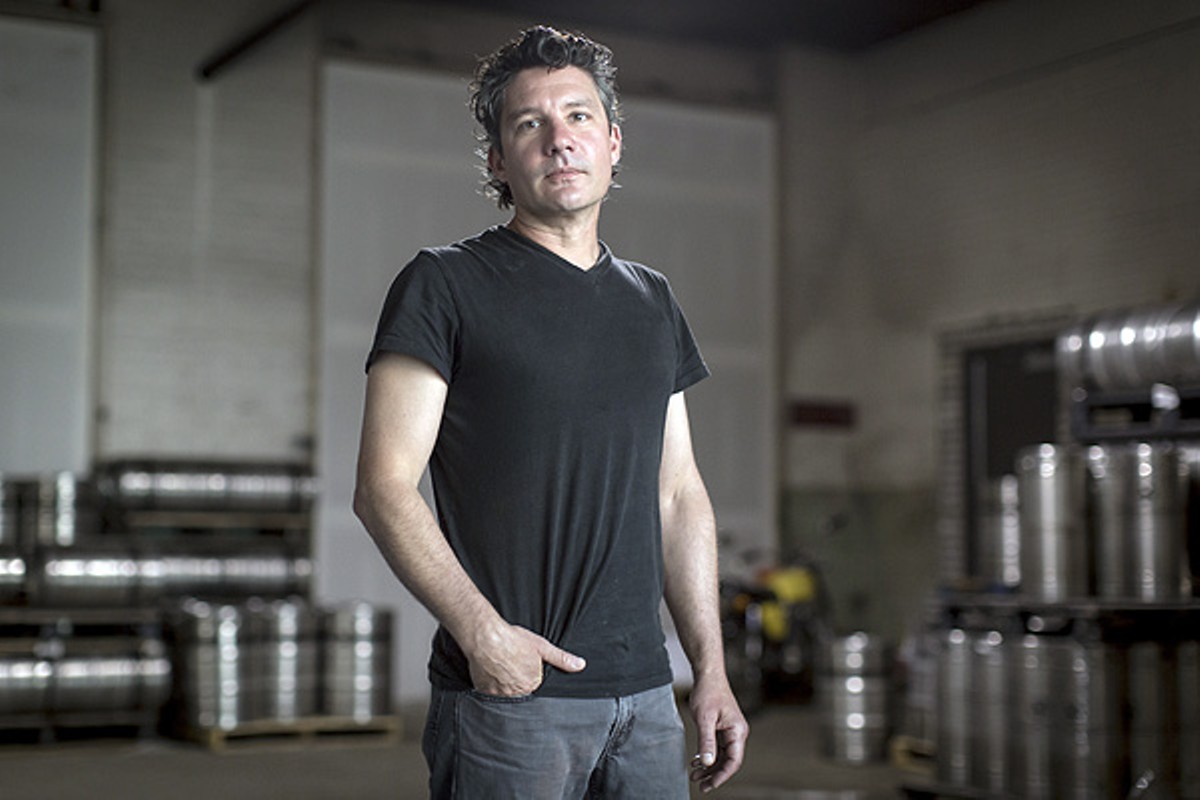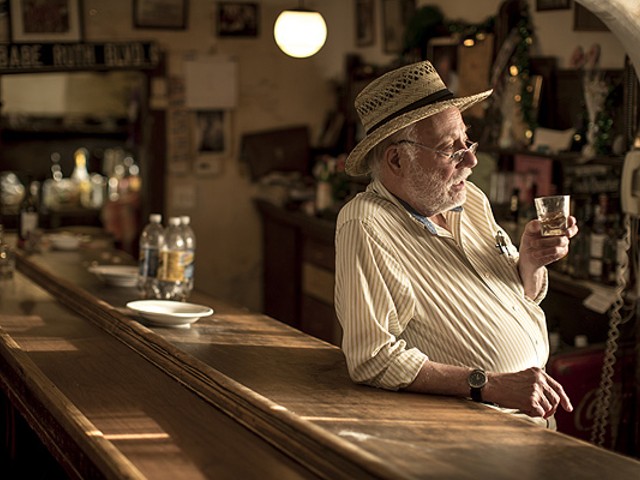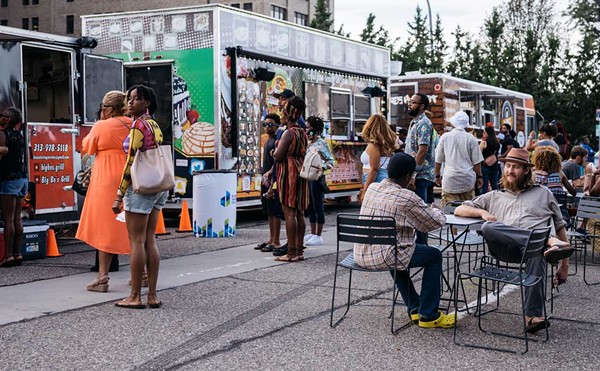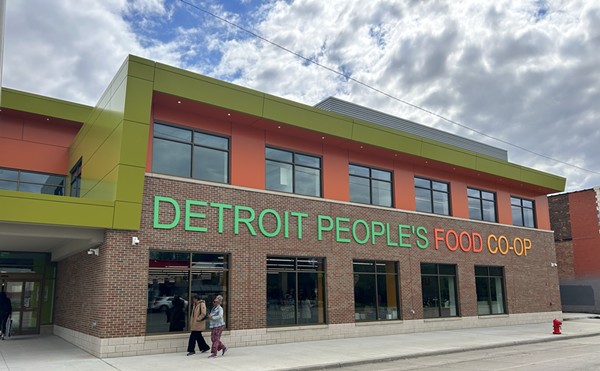John Linardos, 47, honcho at Motor City Brewing Works, is hanging out in the green alley behind his taproom. It's hard to believe this is where he started his rough-and-tumble brewing operation back in 1994.
"This is where Johns would score," he says. "That lot right there between the green garage and that building, cars would pull in there and do their business and pull out. It was nuts. In the last three, four years, the change has been really dramatic. And now we're all just kind of like, 'What the fuck?' There's dog bowls with plumbed-in water on the sidewalk."
Born in Trenton, Linardos came to the Cass Corridor neighborhood right after high school. As a younger teenager, he'd sneak away to shows at the Old Miami and played in a few bands, so he knew what he was getting into when he moved to the neighborhood in 1985 to attend the College for Creative Studies and study sculpture. What hooked him about the disinvested neighborhood was its tight community of bohemians, artists, activists, and musicians.
"One of the reasons I stayed was because there was a very strong sense of community," Linardos says. "Detroit was probably the biggest small town in America. I used to say you could move to Detroit and meet everybody you needed to meet for whatever your project was within a year, whether it was politics, art, anything."
Nobody was more surprised by the swiftness of change in Midtown than Linardos.
"We've got the high-end retailers coming in and we've kind of gone from 0 to 100," he says. "I worry that a lot of the types of restaurants where the owner greets you at the door or the owner's looking over asking how your food is, that's kind of going away in this neighborhood. We used to have regulars all the time. Not so much anymore. You get the tourists on the weekends, and the regulars still come in — they know when it's empty — but it's nothing like it used to be in the beginning. We had amazing nights in the taproom, with that horseshoe bar. And you'd have your regulars and you'd have your six or seven people from the 'burbs or from outside of the neighborhood come in and they would all be talking. There were amazing conversations. Of course, our lights would get turned off the next morning because we hadn't paid the bills. You know, looking back on it, even then, a lot of us knew that was a special time."
But Linardos admits change is a double-edged sword. Only last year did the business manage to pay off all its liabilities and become steadily profitable. He can accept the change "because it also comes with streetlights and people walking all over the place on a Sunday instead of tumbleweeds blowing down the street," he says. "I was bemoaning to [a friend] the fact that the good old days are gone. He was like, 'Hey, Johnny, you really wanna go back to '83?' And I was like, 'Uh, maybe not.'"






